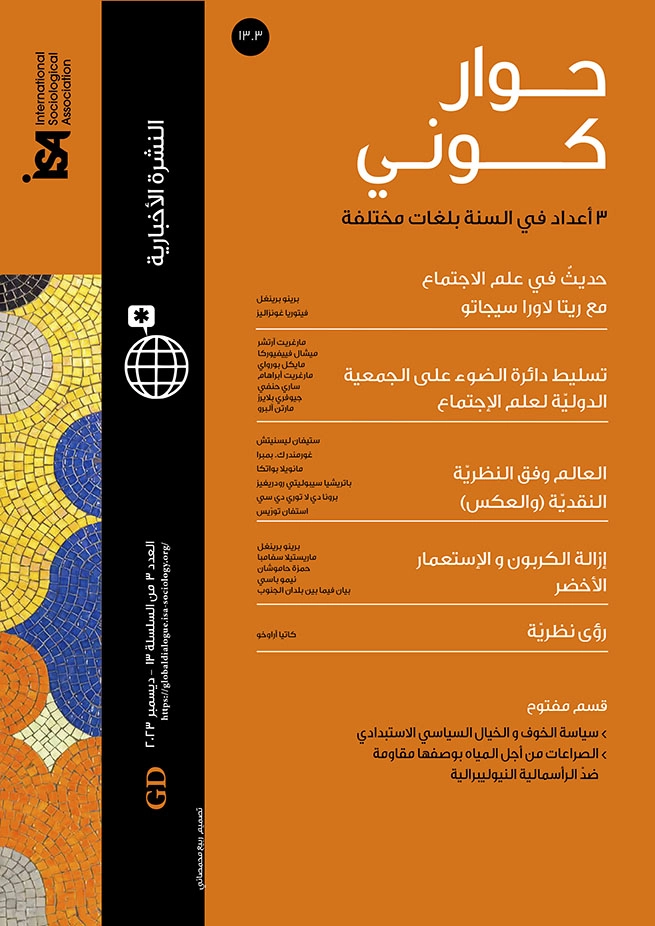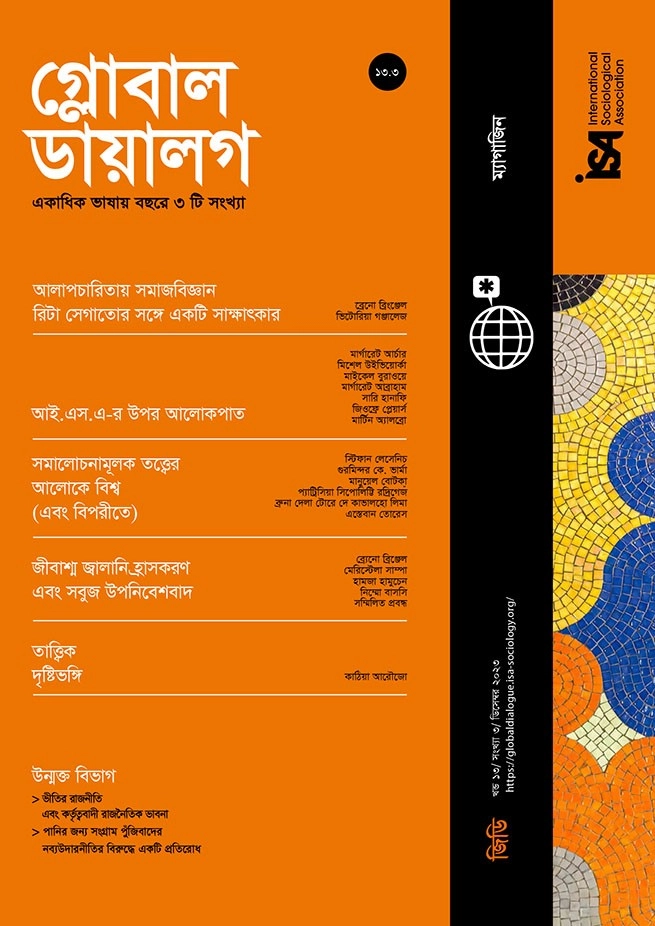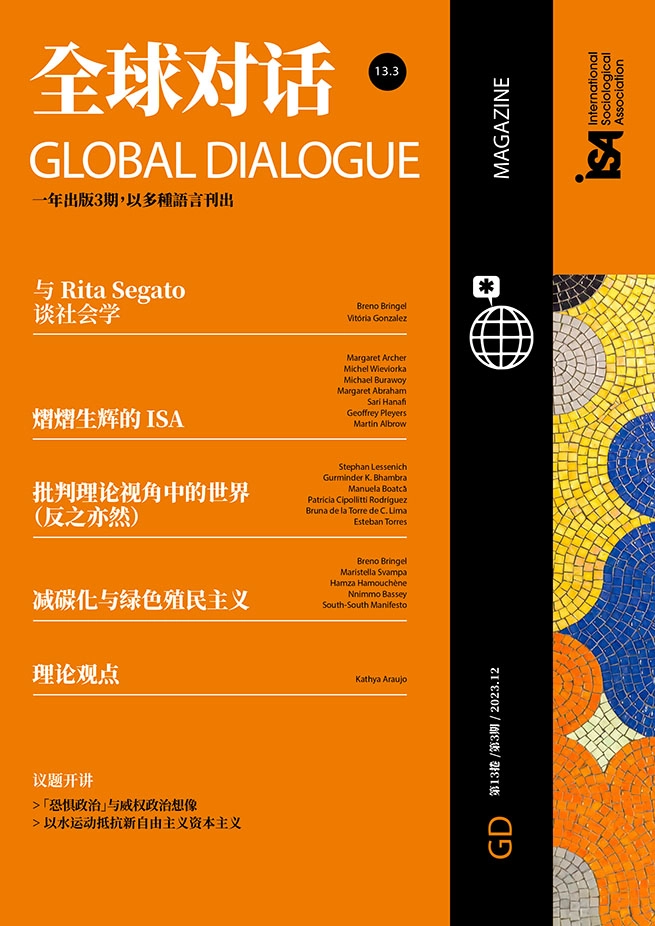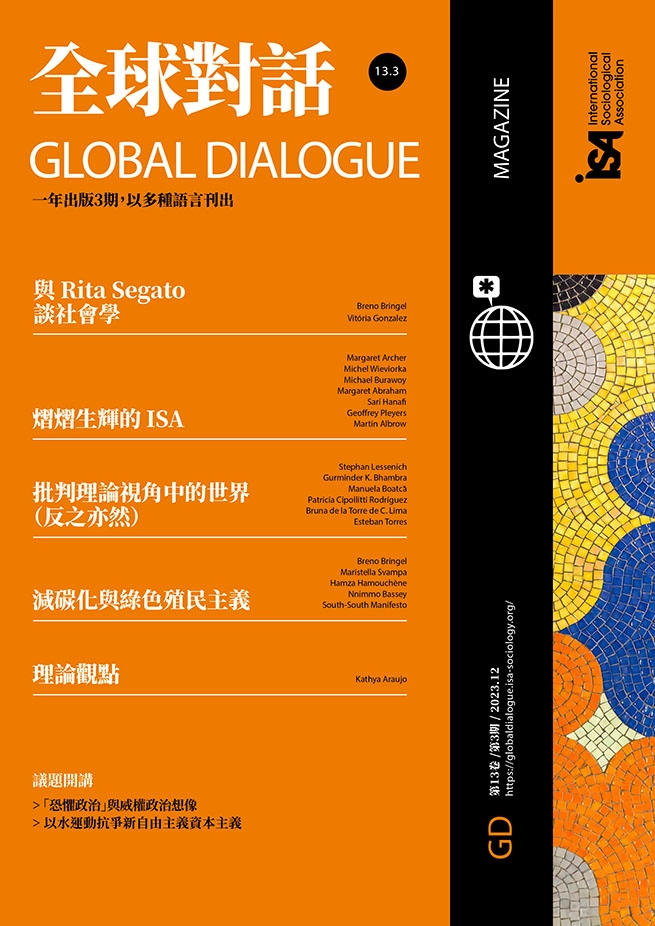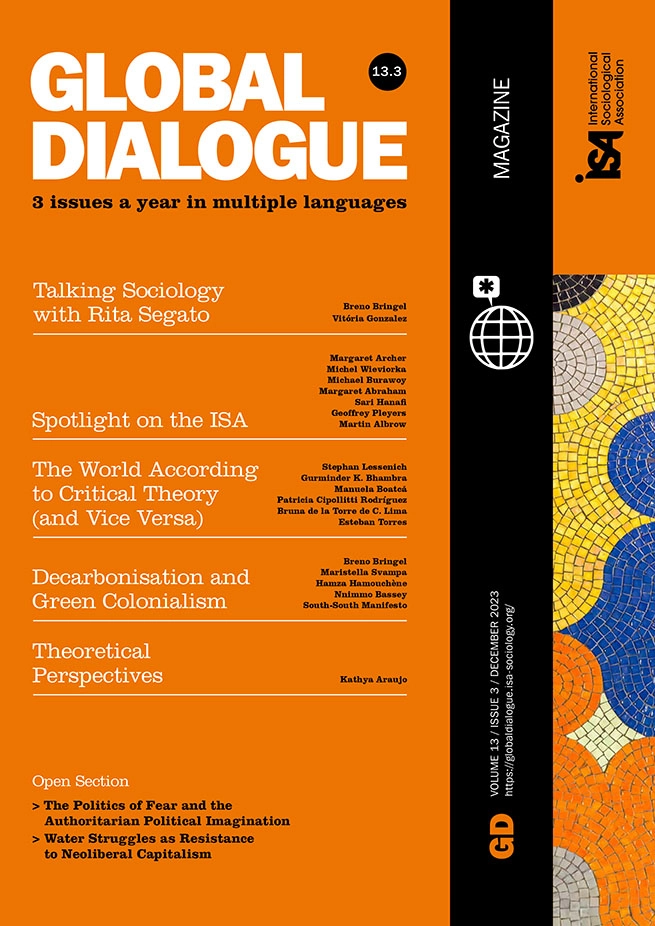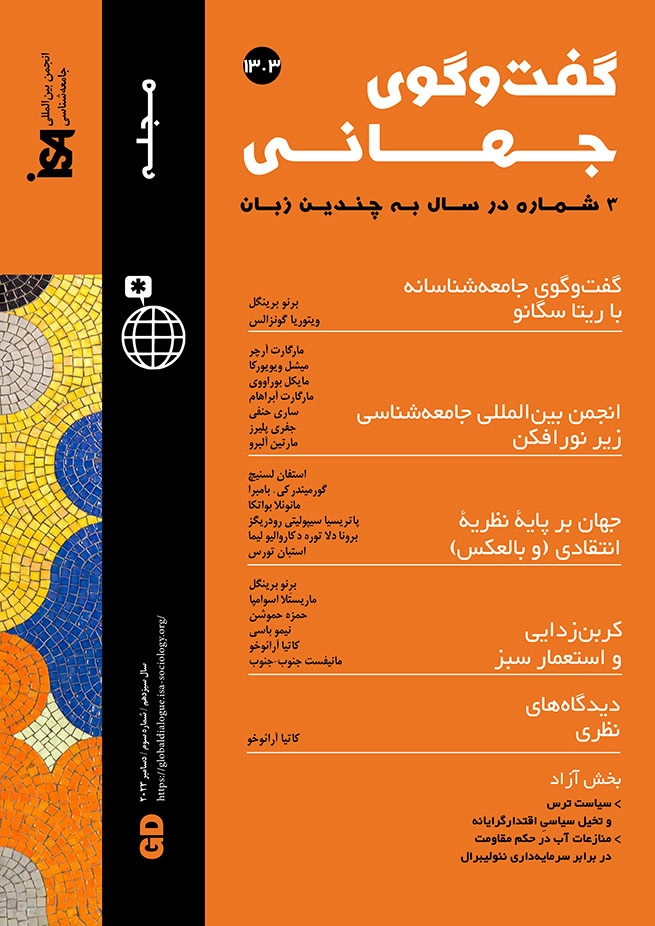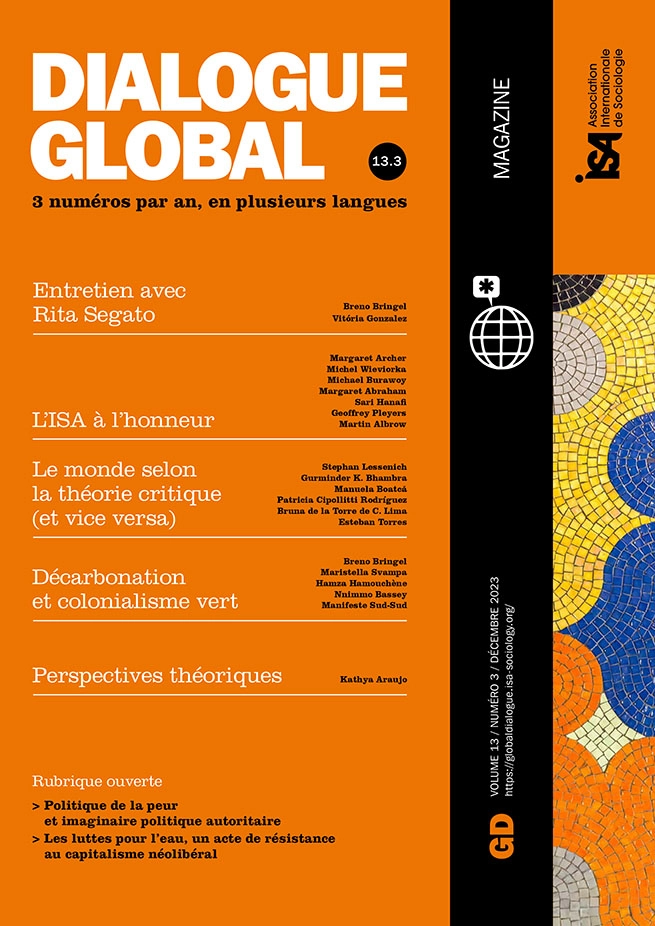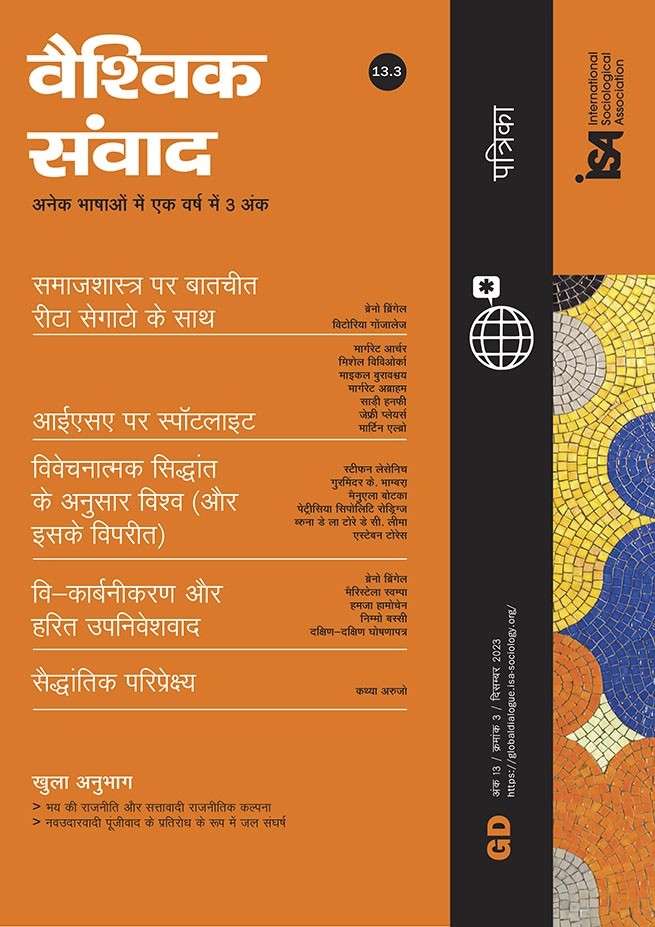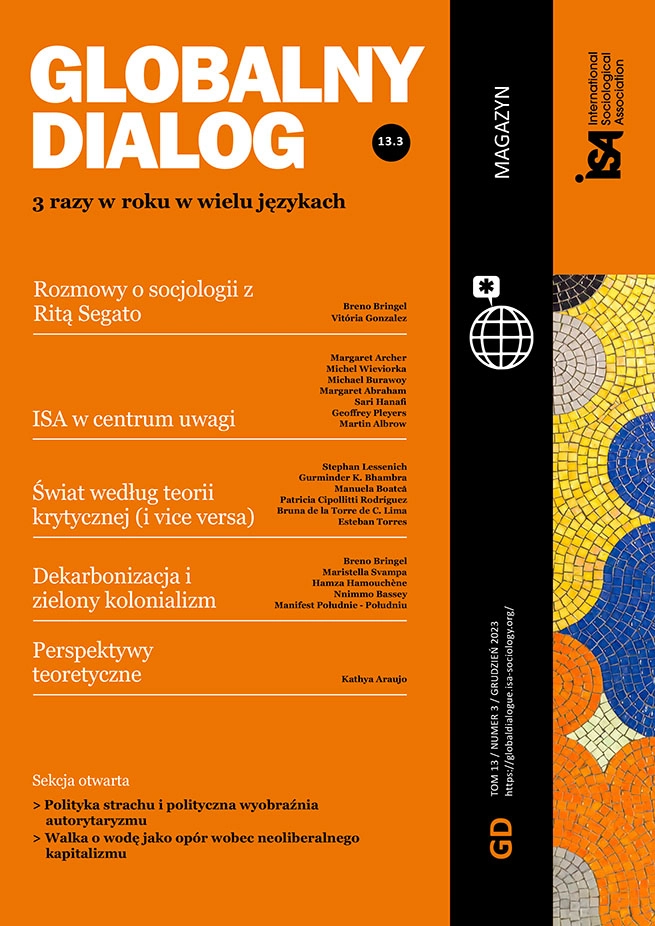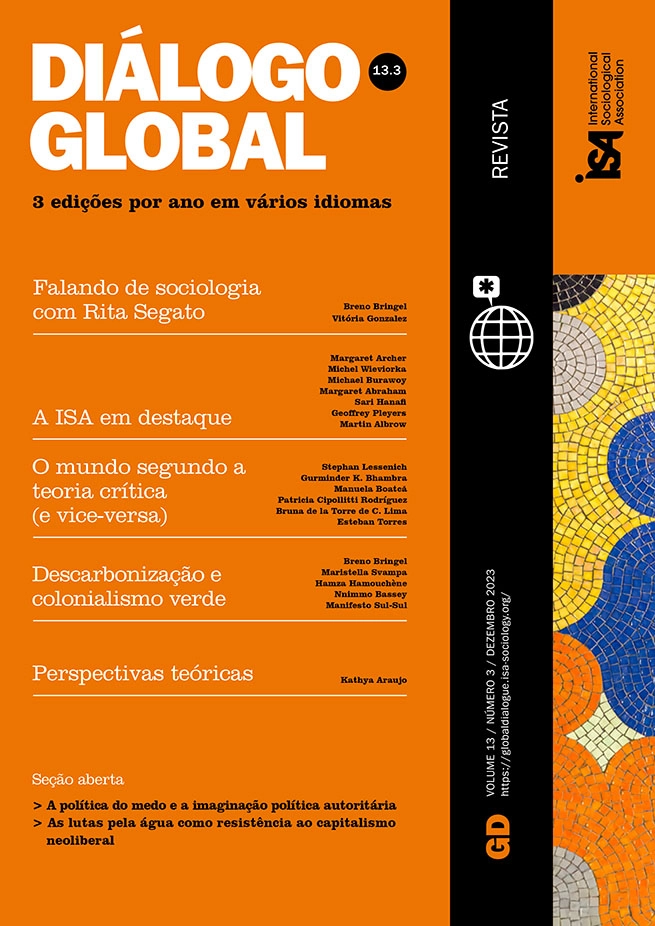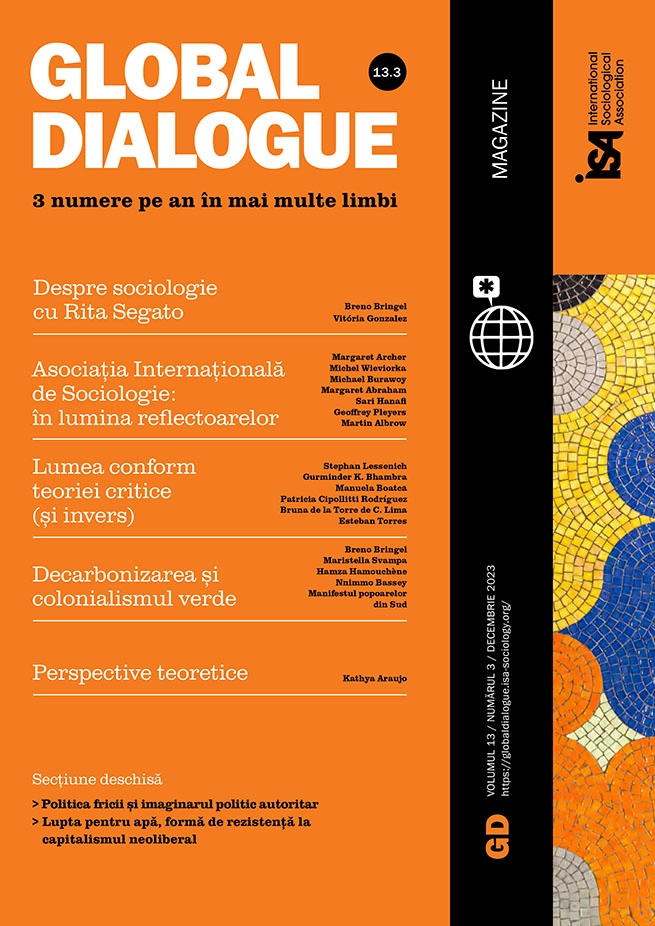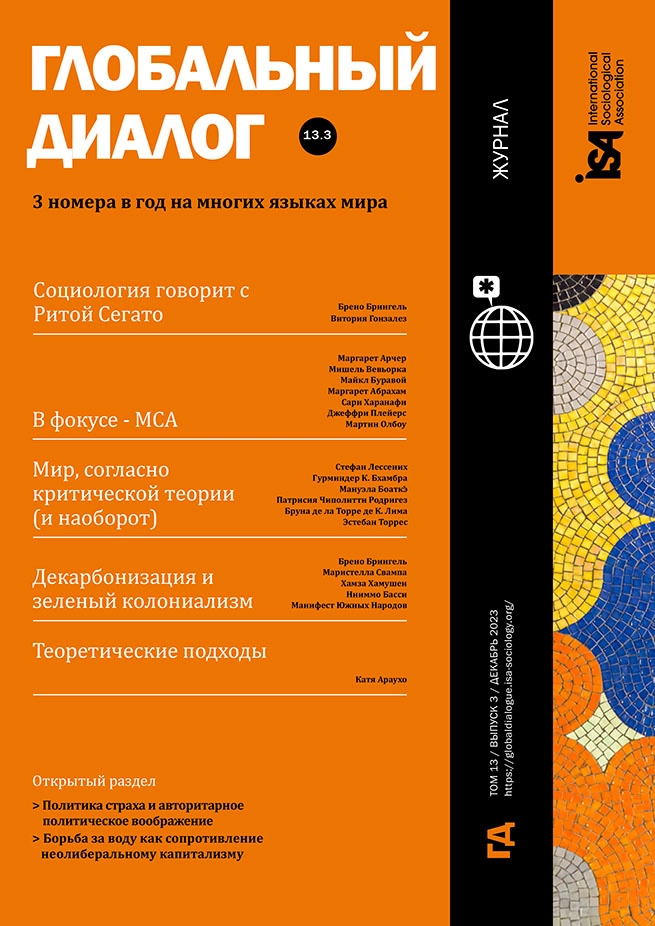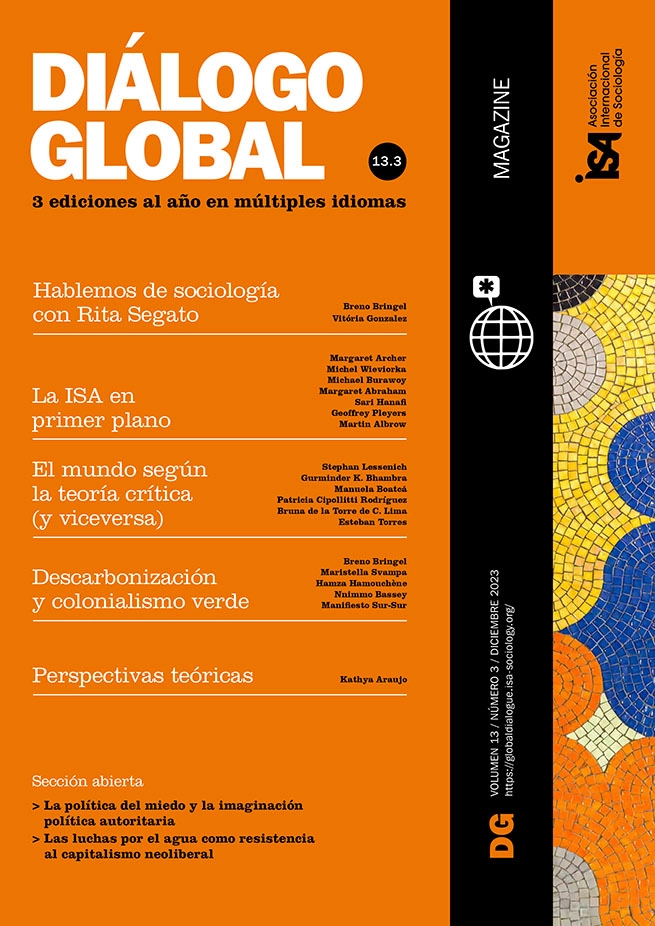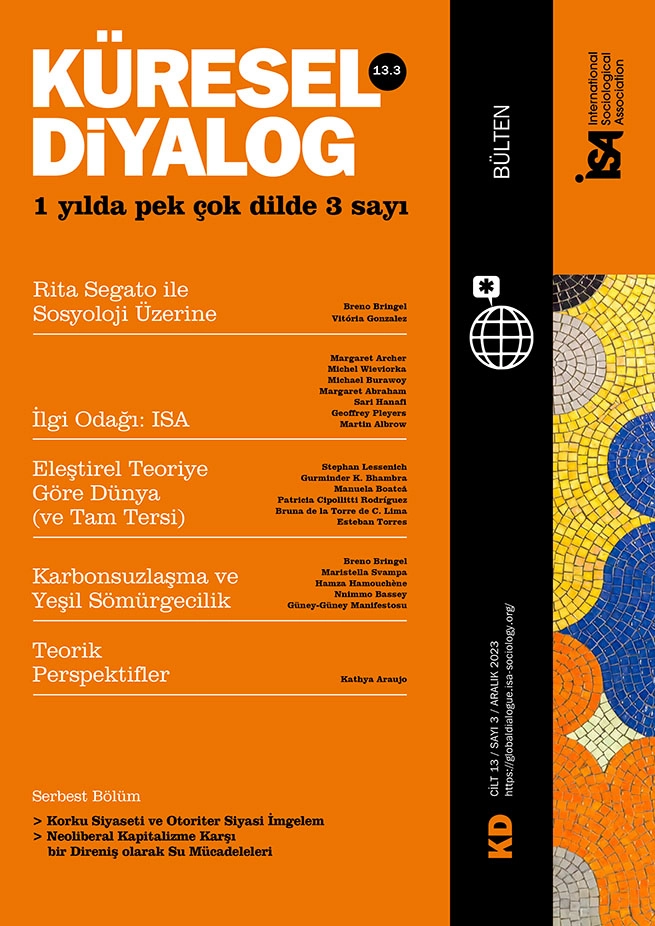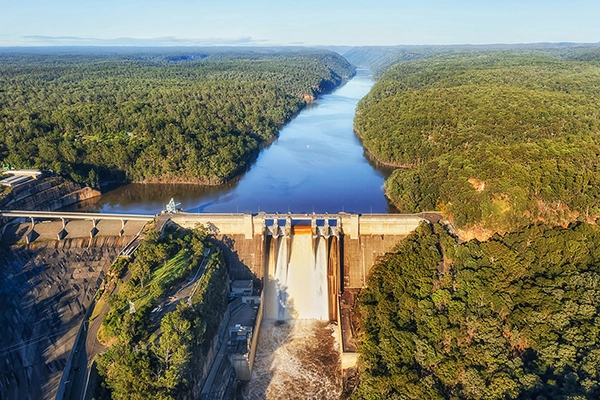Read more about Open Section

The Politics of Fear and the Authoritarian Political Imagination
by Lara Sartorio Gonçalves
November 22, 2023
Growing up in Australia during the Millennium Drought, water – or the lack of it – was omnipresent. Now that I have lived in northern Europe for most of the last decade, the growing urgency of discussions on diminishing groundwater, drought, and stagnant rivers feels worryingly familiar. For much of the minority world, water has tended to be something that we take for granted. It is when water is absent, when it stops flowing, or when what flows is so polluted that it is unsafe that we start to take notice of the myriad ways in which we are dependent upon water and the ways that it lubricates the global political economy. Water, its presence or absence, determines not only how and where we can live, but also who will survive, which is simply to say that we cannot do without it.
The common good must be central to any solution
Such an alienated relation to water is far from universal; many Indigenous communities understand water as life, as part of us, and thus as something that cannot be commodified. For the over 2 billion people who live without access to clean drinking water, and 25% of the world’s population who live in water-stressed environments, water is clearly not something that is taken for granted. Water activists around the world have united under the common call “water is life” demanding that water be understood as a common good that is central to any successful response to the ongoing ecological crisis.
Despite facing a global water crisis, water and its related services and infrastructures continue to be commodified, privatised, commercialised, and increasingly financialised. These processes are presented as solutions rather than causes of the crisis. For example, the outcomes of the recent UN Water Conference – the first UN conference dedicated to water in over 50 years – comprised calls to further mobilise the private sector to fill the financing gap. And while transnational corporations, water companies, and finance institutions were encouraged to make voluntary pledges and included in discussions on how water management could be further integrated with green (now perhaps also blue?) finance and corporate social responsibility, many water activists and NGOs were not invited.
Life-making versus profit-making: resistance to commodification
In my recently published book Water Struggles as Resistance to Neoliberal Capitalism: A Time of Reproductive Unrest, I explore the global water crisis and the ways that communities in Australia and the Republic of Ireland have resisted the expansion of the water commodity frontier. I employ an incorporated comparison where struggles over water are used as a vehicle through which to give coherence to this specific conjuncture; a conjuncture marked by concurrent economic, ecological, and social reproductive crises, of which the global water crisis is one facet.
The book has two central foci. First is the critical role of expropriation (of water, nature, and social reproduction) for capitalist accumulation. The second is the forms of agency that emerge in response to these dynamics. In bringing into dialogue the protests against water charges in Ireland and resistance to unconventional gas expansion in Australia, I explore the tension between life-making and profit-making that defines the new water commodity frontier.
My argument is that each water grab reflects a different, if inter-related, facet of a system that continues to undermine the capacity for life-making. In both cases, water resources or water as social reproduction infrastructure were reimagined as sites of accumulation to resolve existing accumulation crises that had emerged following the 2008-2010 financial crises. In Australia, nature was employed as ‘tap and sink’ where economic growth was dependent on its continuing expropriation in the forms of fossil fuels, mining, and agriculture. Meanwhile, in Ireland, public water services were targeted for restructuring to re-balance public budgets following the bank bailout, and working-class communities suffered the consequences.
The ‘spherical fix’ as ineffective crisis management
However, a key argument of the book is that by acting in this way, the potential economic crises were not resolved. Rather, the expropriation and reimagining were shifted to the conditions that make accumulation possible: social reproduction, nature, and increasingly the state. Taking up David Harvey’s conception of a spatial fix and reading it through social reproduction theory, I develop the notion of a spherical fix to show how crises are moved between these spheres as a form of crisis management. In Ireland, economic crisis was “resolved” by transforming it into a crisis of social reproduction for working-class communities. In Australia, potential economic crisis was staved off by fuelling the ecological crisis through intensified extraction of fossil fuels for export, and then subsequently depleting the social reproductive capacity of rural communities that were dependent upon those same waterscapes. This idea of a spherical fix thus also highlights the dependency of these accumulation regimes on the expropriation of nature and socially reproductive labour, that is, key dynamics of the global water crisis.
Yet in each case, by prioritising the reproduction of transnational capital over rural and working-class communities, the political institutions necessary for capital accumulation were destabilised. An overt overlap of political and economic interests saw both a closing down of formal political opportunities for alternatives and growing dissent amongst those rendered disposable in the existing status quo. Economic crises were now also taking the form of political crisis. In the process of struggle, subversive rationalities emerged that were incoherent with what had happened before; the political terrain was reconfigured as communities were newly politicised through struggle.
Two examples of growing social struggle and class antagonism
In Australia, by redefining water as collective rather than a form of private property, rural communities were combating an alienated understanding of society and nature that was central to Australia’s colonial expansion of the White commodity frontier. Understanding water and communities as co-constitutive made it necessary to separate questions of land ownership from private property, raising questions of dispossession and problematising terra nullius. In these social movements an incoherence with the dominant logics of the state and market emerged, as did a class antagonism along ecological lines. Water came to be understood as a constellation of contested social relations; and people’s class position was determined by their relation to these processes of expropriation, rather than as a stratified position in society.
In Ireland, the focus on water as social reproduction infrastructure evolved quickly into a broader critique of the state and related institutions, particularly representational democracy. Water as social reproduction and related infrastructure was understood as common, a collective right, which should not be a target for capital accumulation. However, through making these claims, the limited capacity and interest of the state to account for this collective right came into sharper focus: the material limitations of the state meant that even if rights such as the right to water were expanded on paper, they could not be realised. The Irish state and its embeddedness in circuits of global finance capital meant that it would continue to be an antagonist to the realisation of working-class interests.
Space for subversive rationalities: reproductive unrest
In the process of each social struggle more than temporary alliances emerged; a common relation to expropriation allowed solidarity across and within communities. Both the Irish and Australian communities exemplified a key contradiction of neoliberal capitalism: the increasing incompatibility of the conditions necessary for profit-making and life-making. In analysing these struggles through a dialogue with eco-socialist and social reproduction theory the arena for class struggle was broadened to include the home, nature, and neighbourhood.
Locating these struggles within the global water crisis and starting at the points of contradiction, I argue that struggles over water both interrupt processes of capitalist reproduction and open a space for subversive rationalities. In Australia and Ireland, what has emerged is a time of reproductive unrest. As I show throughout the book, the global water crisis is not only about access to or management of a resource. What is at stake are the social relations and institutions that allow water grabs and the crises to occur.
Madelaine Moore, Bielefeld University, Germany <madelaine.moore@uni-bielefeld.de>
This issue is not available yet in this language.
Request to be notified when the issue is available in your language.
If you prefer, you can access previous issues available in your language:
